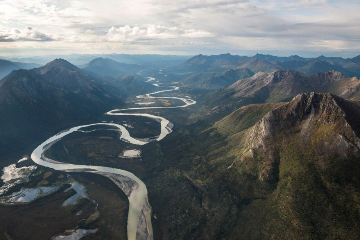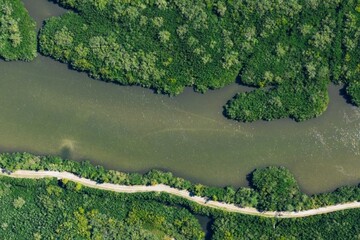Challenge
River basins are the natural unit of area in which to manage water resources. With intensifying water use, climate change, and land use changes, achieving sustainable water management on the river basin scale is becoming more and more challenging. Water needs to be allocated between different sectors such as irrigation, industry, drinking water supply, power generation and nature. Basin-scale plans for distribution of water and prioritization of water uses under stressed conditions need to be implemented to achieve this. A range of environmental, social and political issues need to be considered to achieve a sustainable supply of water, of the right quality and quality, to the correct location, at the right time. With water demands already exceeding availability in many regions, changes in climate patterns (often leading to prolonged droughts and more extreme rainfall events) are expected to further enhance complexities faced by decision makers. National governments, (transboundary) river basin management authorities, regional water boards, and NGOs increasingly require decision support tools and advice that address the issues related to water demand vs. water supply discrepancies, in order to ensure adequate supply of fresh water to all water users in a basin, now and in the future.
FutureWater approach
FutureWater is experienced in providing solutions for sustainable water management on a river basin scale. Our projects are managed through cooperation and participation with stakeholders such as governments, water managers and farmers, to ensure the uptake of local knowledge in our decision support systems and consultancy reports. By employing leading international experts in the fields of water resources management and hydrology, FutureWater can support clients in various ways:
Basin-wide water availability under changing conditions
FutureWater makes use of a variety of tools and simulation models designed for quantitative assessment of water availability on different spatial scales. These tools are deployed for baseline assessments as well as scenario analyses, in order to accommodate a range of future projections (climate, demography, land use, water resources development) to allow the decision maker to anticipate on future conditions. Crunching of Big Data associated with elaborate scenario analyses, into understandable and intuitive outputs, is part of the core expertise of FutureWater. Scenarios are typically developed in close collaboration with clients and other relevant stakeholders in the basin.
Optimizing river basin planning and water allocation
For river basin planning purposes, it is essential to relate water availability to water demand in space and time. Optimal water allocation rules need to be defined to achieve water management policies that are resilient to changing patterns in both supply and demand. This relates to both human water use and environmental flow requirements. By working with well-established water allocation optimization tools, FutureWater supports governments and river basin organizations in formulating water allocation policies and identifying opportunities for further, sustainable water resources development. Typically, concept-based decision support models are coupled to physically more advanced water resources availability models (see above), to provide the full, basin-wide picture.
Integrated planning based on the water-food-energy-ecosystems nexus
In the context of complex river basins, looking at water flows alone is not enough to achieve sustainable management of water resources. FutureWater has many years of experience in the development and application of tools for spatiotemporal assessment of crop production, potential for hydropower energy, and a range of water-related ecosystem services. By providing insight into the benefits to be had from basin water resources under different scenarios, FutureWater allows decision makers to account for the full water-food-energy-ecosystems nexus in river basin planning.
Our Solutions

Hydrological Modelling
SPHY is a spatial water balance model that integrates hydrological processes and is flexible in scale and time. We apply SPHY in various projects, such as understanding hydrological changes, watershed management, irrigation management, runoff forecasting, land degradation and restoration, energy assessment and hydroclimatic extremes research. The model can be adapted to different climatic conditions and uses different input data.

Water Allocation and Planning
We provide advice to water managers on different time scales, from day-to-day operational management to strategic decision making in river basins. We use models and tools such as WEAP and SPHY to simulate water supply and demand, and in this way we have built WEAP models for the Segura catchment area in Spain and investigated irrigation investments in Asia.

